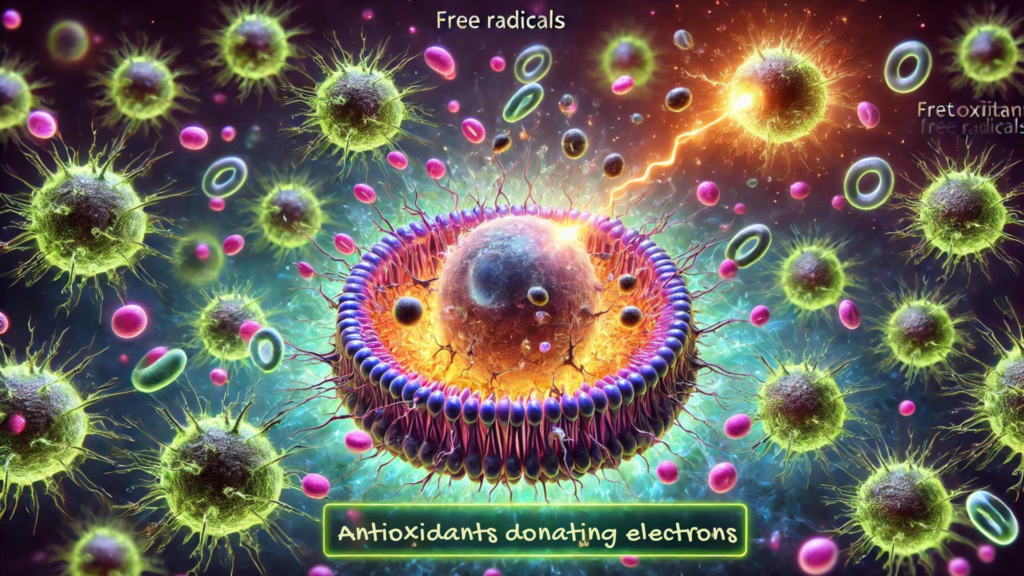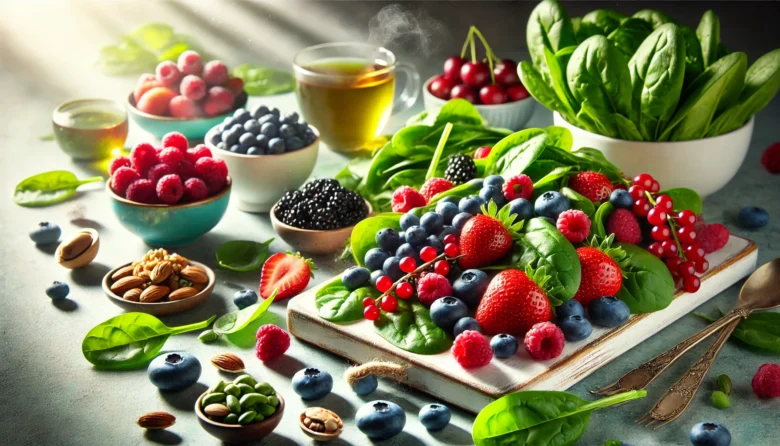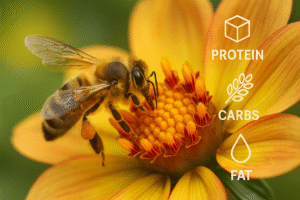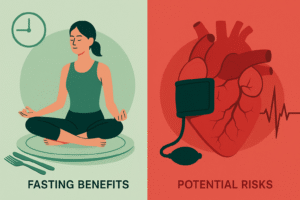Have you ever wondered why health experts keep advising us to eat more fruits and vegetables? It’s not just about vitamins and minerals—there’s something powerful inside these foods called antioxidants. In this blog, we’ll explore the chemistry of antioxidants in the body, how they work, and why they’re essential for our health. If you’ve heard the term but aren’t exactly sure what antioxidants do, don’t worry! By the end of this, you’ll have a clear understanding without needing a chemistry degree.
What Are Antioxidants?
At their core, antioxidants are molecules that fight damage caused by free radicals—unstable atoms in our body that can lead to oxidative stress, which in turn damages cells and contributes to ageing and diseases. But before diving into how antioxidants combat free radicals, let’s break down some key concepts.
Free radicals are naturally formed in the body during processes like digestion and energy production. They can also be introduced from external sources like pollution, UV radiation, and cigarette smoke. Left unchecked, free radicals can damage DNA, proteins, and lipids (fats) in the body, leading to various health issues like cancer, heart disease, and premature ageing.
This is where antioxidants come to the rescue. They neutralize free radicals by donating an electron, which stabilizes them. Think of free radicals as tiny thieves trying to steal electrons from your cells and antioxidants as the generous donors that prevent the chaos.

The Chemistry Behind Antioxidants
So, what exactly happens on a chemical level? Antioxidants have extra electrons they can give away without becoming unstable themselves. This makes them ideal protectors for the body. The most common antioxidants include:
Vitamin C (ascorbic acid): A water-soluble antioxidant, meaning it works in the fluid portions of the body. Vitamin C helps protect against damage in environments like the blood plasma and tissues.
Vitamin E (tocopherol): A fat-soluble antioxidant that protects the cell membranes from oxidative damage, which is important because these membranes are made mostly of fats.
Glutathione: Known as the “master antioxidant,” this molecule is produced within your own body and plays a key role in reducing oxidative stress by recycling other antioxidants like Vitamin C and Vitamin E.
Flavonoids: Found in fruits like berries and grapes, these antioxidants are plant-based and work wonders by neutralizing free radicals in the body.
Let’s illustrate the power of antioxidants with a simple case: Imagine you’re cutting an apple. After a few minutes, it starts to turn brown. This is oxidative damage caused by exposure to oxygen in the air. But if you rub lemon juice (rich in Vitamin C) on the apple, the browning slows down significantly. That’s an example of how antioxidants work!
Why Are Antioxidants Important?
The importance of antioxidants can’t be overstated. They act as the body’s defence system against the harmful effects of oxidative stress. Without antioxidants, the damage caused by free radicals would accumulate, leading to chronic diseases like cancer, Alzheimer’s, diabetes, and cardiovascular disorders.
Real-Life Case Study: Antioxidants and Heart Health
Studies have shown that diets rich in antioxidants, particularly from fruits and vegetables, significantly reduce the risk of heart disease. A well-known case study involved a Mediterranean diet, which is packed with antioxidant-rich foods like olive oil, nuts, and leafy greens. Over several years, participants following this diet experienced reduced inflammation, lower oxidative stress, and better heart health compared to those who didn’t consume as many antioxidants.
Sources of Antioxidants in Our Diet
Getting enough antioxidants in your diet is easier than you think! Here are some of the most powerful sources:
Fruits: Blueberries, strawberries, and oranges are packed with antioxidants like Vitamin C and flavonoids.
Vegetables: Spinach, kale, and broccoli contain antioxidants like beta-carotene and lutein.
Nuts and seeds: Almonds and sunflower seeds are rich in Vitamin E.
Beverages: Green tea and coffee provide polyphenols, a class of antioxidants that have been shown to fight free radicals.
Dark chocolate: Yes, you read that right! Dark chocolate contains flavonoids that help protect your heart.
Antioxidants and Aging
One of the most appealing benefits of antioxidants is their role in slowing down the ageing process. Since free radical damage accumulates over time, antioxidants help keep our cells healthy and youthful. This is why many skincare products boast antioxidants like Vitamin C and E, as they help protect the skin from UV damage and reduce wrinkles.
The Role of Antioxidants in Cancer Prevention
Free radical damage is also linked to the development of cancer. While antioxidants alone can’t prevent cancer, they certainly reduce the risk by protecting cells from oxidative stress. Research has shown that people who consume diets rich in fruits, vegetables, and whole grains—foods full of antioxidants—have a lower incidence of certain types of cancer.
Conclusion
To wrap it all up, antioxidants are the body’s natural defence mechanism against the harmful effects of free radicals. By consuming a diet rich in antioxidants, you help protect your cells from damage, reduce your risk of chronic disease, and support overall well-being. Next time you enjoy a handful of berries or a cup of green tea, remember that you’re giving your body a much-needed boost of antioxidant protection.
Call to action: Why not try adding more antioxidant-rich foods to your daily meals? Start with small changes—add some spinach to your breakfast smoothie or grab a handful of nuts for a snack. Your body will thank you!
Author’s Note
I hope this blog has shed light on the importance of antioxidants and how they work to keep us healthy. Incorporating antioxidant-rich foods into my diet made a noticeable difference in my life, and I encourage you to give it a try!
G.C., Ecosociosphere contributor.
References and Further Reading
- Harvard School of Public Health: Antioxidants Explained
- National Institutes of Health: Antioxidants and Health
- Woo, M., & Song, Y. (2018). Bioactive Compounds in Kimchi Improve the Cognitive and Memory Functions Impaired by Amyloid Beta. Nutrients, 10(10), n/a.





Comments
There are certainly numerous details like that to take into consideration. That is a great level to deliver up. I provide the thoughts above as general inspiration but clearly there are questions just like the one you bring up the place an important factor can be working in honest good faith. I don?t know if finest practices have emerged around issues like that, but I am positive that your job is clearly recognized as a fair game. Each boys and girls feel the affect of just a second’s pleasure, for the rest of their lives.
What i do not realize is in reality how you’re not actually much more smartly-preferred than you may be right now. You’re so intelligent. You realize thus significantly in terms of this topic, made me individually believe it from so many numerous angles. Its like women and men don’t seem to be involved until it is something to accomplish with Girl gaga! Your personal stuffs excellent. At all times maintain it up!
I don’t usually comment but I gotta state appreciate it for the post on this perfect one : D.